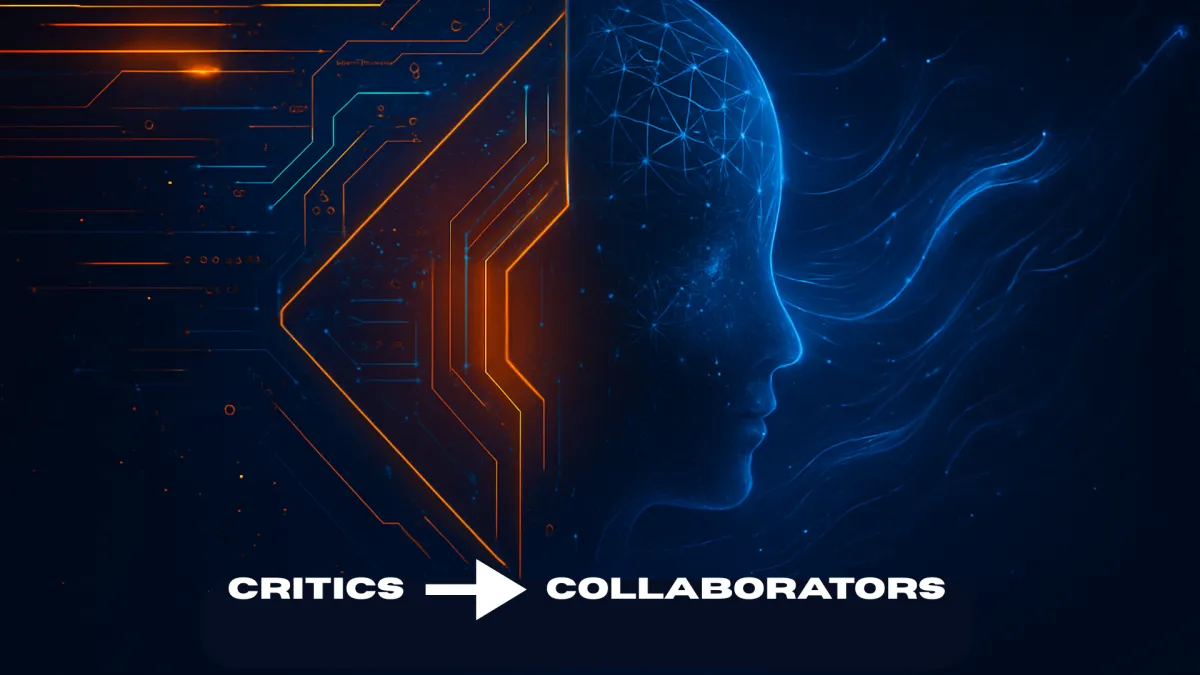
Your Critics Are Your Best Marketing Research
Most professionals treat LinkedIn criticism like spam. Delete, block, ignore. You're missing the most valuable data you'll ever get about your messaging.
Every critical comment is free market research. Someone took time to tell you exactly how your content landed with them. That's worth more than any focus group. The problem is your first instinct. When someone calls your post "generic marketing fluff," your brain screams defence mode. Fight or flight kicks in.
Here's what changed everything for me: I started seeing criticism as audience feedback instead of personal attack.
When that comment appeared calling my content "generic marketing fluff," I felt annoyed. Embarrassed, even. Then I caught myself. If one person is saying it, others are probably thinking it. Instead of dismissing the comment, I responded with clarity. Explained what I actually meant. The thread that followed was better than my original post. Others joined in and the conversation became real.
That's when I realized: every comment is a window into how people receive your message. And that's valuable data if you're willing to sit with it.
For months, I handled criticism intuitively. Sometimes it worked, sometimes it didn't. Then I noticed that patterns were emerging. The posts where I engaged thoughtfully with critics generated deeper conversations. People started saying things like "I hadn't thought of it that way." This is what thought leadership looks like in action.
So I built a framework. Five steps that turn critics into collaborators:
Pause before responding. Not just to cool off, but to assess what's really being said.
Extract the signal. Ask yourself: is this criticism pointing to a misunderstanding, a blind spot, or a deeper tension worth unpacking?
Respond with clarity, not defensiveness. Use it as an opportunity to clarify or expand, ideally in a way that benefits your whole audience.
Reframe for insight. Turn the critique into a mini case study or narrative that illustrates a bigger idea.
Invite dialogue. Ask others if they've felt similarly, or how they'd handle it, to deepen engagement.
In this way your critic becomes your collaborator and your post becomes conversation.
Not every criticism deserves engagement. You need to distinguish between substance and performance. Look for comments that point to something specific, even if they're harsh. These usually signal something worth exploring. Critiques that challenge your idea rather than attack you personally are opportunities. When someone asks a pointed question or flags a blind spot, that's valuable. But vague outrage, sarcasm, or performative negativity? That's more about them than your message. The difference is intent and substance.
The good news is, AI can enhance this entire process without replacing human judgment. Imagine tools that detect surface patterns in feedback across your posts, flag recurring objections, and analyse comments to distinguish emotional venting from constructive critique.
AI could cluster comments by tone and topic, then suggest tailored response strategies through clarifying questions, reframes, data-backed replies. This gives you a strategic head start so you can focus your energy where it counts most.
At Digital Suite, we're building exactly these kinds of AI-powered response systems for professional service firms. The goal is strategic assistance, not replacement of human insight.
Here's what professionals stuck in the "ignore the haters" mindset miss: the competitive advantage of transparent engagement. When you respond to criticism with clarity, empathy, and expertise, you're not just defending your ideas. You're demonstrating leadership in real time. Every thoughtful reply signals confidence, not fragility. It builds credibility faster than polished content alone.
In a world full of noise, how you handle critique becomes part of your brand. Ignoring criticism means giving up one of the few moments where real trust can take root. This approach requires a mindset shift, from seeing critics as threats, to seeing them as unpaid consultants.
It means accepting that your first reaction to criticism will usually be defensive. The magic happens in the conscious override. It means developing judgment about which criticism deserves engagement and which doesn't. And most importantly, it means understanding that your response strategy matters more than your original content.
People remember how you handle pressure more than how you handle praise.
Your critics aren't your enemies; they're your most engaged audience members.
Start treating them like the valuable data source they actually are.

